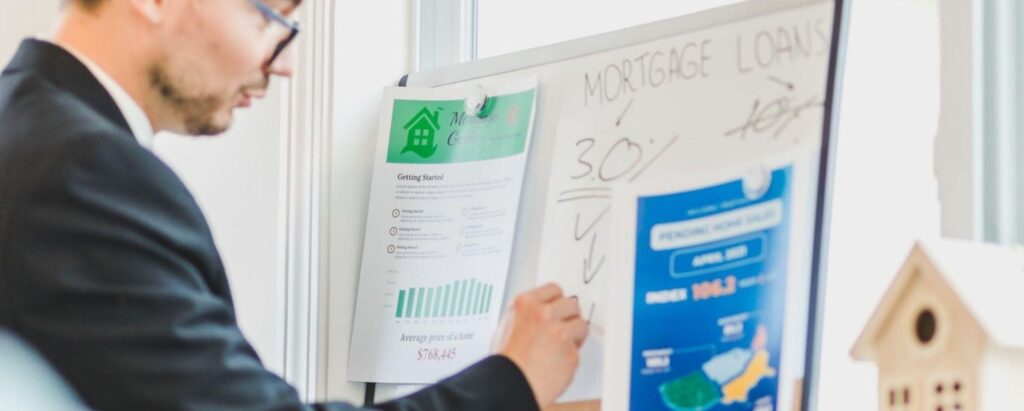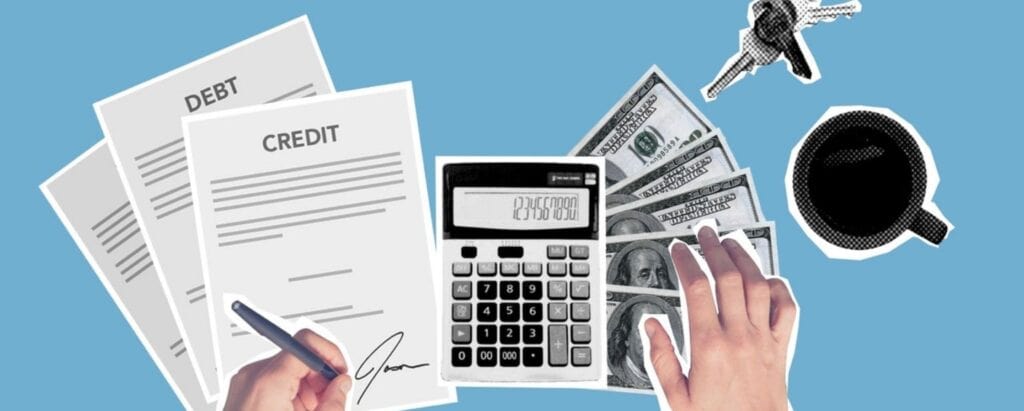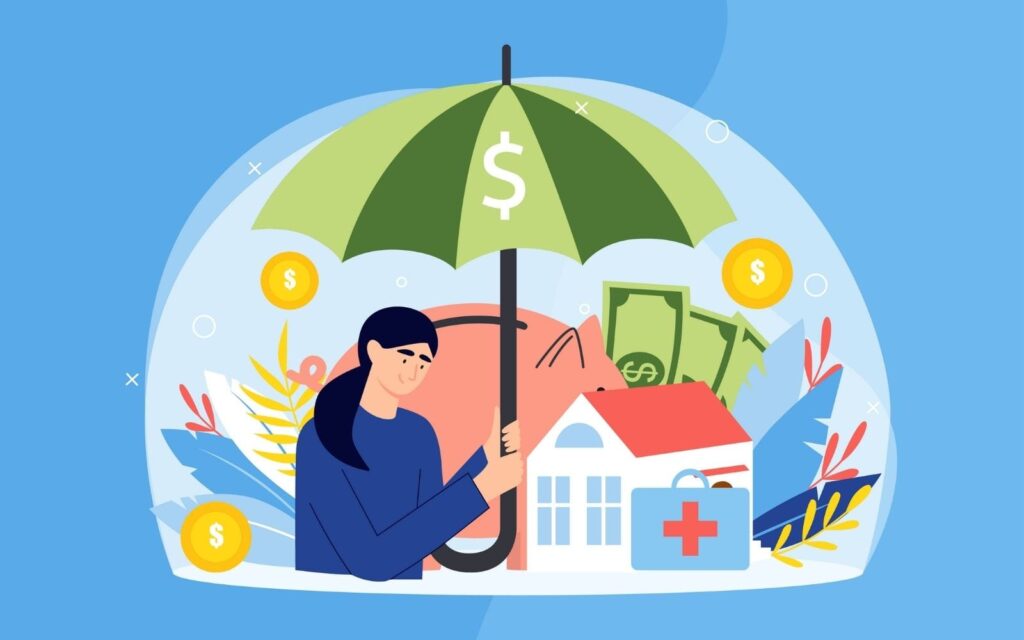Disclosure: This post may contain affiliate links. If you click on a link I may make a small commission at no extra cost to you. You can read the full disclosure here.
Last Updated on October 23, 2022 by Chris Panteli
Why Do Many Banks Consider Student Loans Risky Investments
Student loan debt in the US is an eye-watering $1.75 trillion! That number is so high I can’t even picture it. Imagine it this way – If you laid that money out using dollar bills it would go past the sun!
Why do many banks consider student loans a risky investment?
Student debt continues to rise which means banks are seeing these loans as ever riskier. One thing banks love is stability and knowing they will get their money. Investing in real estate, bonds, or stocks is more popular as the returns are more predictable.
Think of it this way. Student loan debt is so high that a failure could mean the bank itself goes bust. One stock underperforming wouldn’t be so catastrophic.
- Why Do Many Banks Consider Student Loans Risky Investments
- What Are Student Loans?
- Why Do Many Banks Consider Student Loans Risky Investments
- What Types of Loans Are There?
- What Are the Costs and Risks of the Loan?
- Why are student loans considered unsecured?
- Why Are Student Loans Usually Guaranteed By The Government?
- FAQs
- Why Do Many Banks Consider Student Loans Risky Investments
What Are Student Loans?

When a student is accepted to college, they can apply for a student loan. Student loans are financial aid to cover tuition, housing, books, and other costs associated with attending college.
Students must apply for the loan just like any other. However, interest rates are usually better than bank loans. Student loan providers don’t need collateral either which makes them much easier to obtain.
Any student from a difficult economic background can apply for federal student aid. Federal student loans have repayment programs created to help poorer students. The loan still has to be repaid, but the repayment terms are much more manageable.
Are Student Loans Risky?
Student loans are considered risky as balances are high and have a higher interest rate than other types of debt such as credit cards.
The average student loan debt is approximately $30,000. Depending on the field of study some students can leave college owing hundreds of thousands of dollars.
How Can You Avoid These Risks?
If you want to attend college, then loans are unavoidable. However, you can take steps to minimize your risk.
Make sure to get a loan with a fixed interest rate. That way you know exactly how much the total cost of the loan will be.
You can also borrow the absolute minimum. Calculate tuition, housing, books, and other expenses and borrow only what you need.
If you can live at home to study or get textbooks second-hand this can also be a great money saver.
Why Do Many Banks Consider Student Loans Risky Investments
In 2008, there was a global financial crisis that cost the worldwide economy an estimated $2 trillion. The Federal Reserve had to act fast to secure the economy and stimulate growth to aid recovery. This crisis was so devastating it’s now known as The Great Recession.
No financial institution was safe from the crisis that was largely driven by lending to borrowers with bad credit which in turn led to a stock market crash. Failure to repay loans in part led to the financial crisis. Banking giants like Morgan Stanley lost billions of dollars.
Thanks to this crisis many banks and lenders are rightly wary of too much market risk and have lower risk tolerance.
For these reasons, private student loans financed by banks are deemed risky by banks. The good news is that students can still get a private student loan via banks and other lenders due to guarantees made by the government.
What Types of Loans Are There?

Banks and other lenders offer different types of loans depending on the purpose of the loan.
Unsecured Loan
An unsecured loan is when a lender agrees to loan you the money with no asset used as collateral. These loans are a high risk for lenders because if you default on the loan, they can’t take any assets to sell instead.
Due to the high risk, these loans often have high-interest rates and are harder to get accepted for. Here is a summary of different unsecured loans:
Student Loans
These loans are for students going to college or other educational programs. The loan can be used for tuition fees, housing, books, and other college expenses.
Credit Cards
A credit card is a common type of unsecured loan that most adults in the US have. Credit card providers give the cardholder a credit limit. This is the amount you can spend up to.
Although uncommon, it’s possible to get a secured credit card. To do this you would give the credit card provider the equivalent amount of cash to your credit limit. If you fail to pay the bill, they will take what you owe from the cash you’ve provided as collateral.
Personal Loans
An unsecured personal loan is when you agree to repay the amount without the need of a guarantor or collateral. The lender takes your word for it and doesn’t ask for collateral. Failure to repay the loan could affect your credit report.
Automatic Loan
An automatic loan is also known as a secured loan. These loans mean you agreed to repay the loan otherwise your possessions will be repossessed. Buying a car or other vehicles using these loans is common and the vehicle will be repossessed if the loan isn’t repaid.
Mortgage
When buying a property a home loan is usually needed. These types of loans are known as a mortgage. Mortgage terms can mean repayments are spread over 30 years and failure to pay the mortgage means the lender will repossess the property.
Business Loan
Businesses can often get a loan to boost their business. It may be needed to buy stock, equipment, or improve cash flow. Lenders may not agree to a loan for new businesses or if the business doesn’t have assets. Business assets may need to be used as collateral to secure the loan.
What Are the Costs and Risks of the Loan?

Loans are simple to explain. You borrow an amount of money you need and pay it back at an agreed amount per month. Easy, right?
Understanding a student loan in more detail means you can be better prepared for your future.
Current payment
Once you’ve finished your studies you must start repaying the loan. You may not know the exact monthly amount until you need to pay it!
Your repayment terms will depend on the type of loan. For example, federal loans are paid monthly starting 6 months after graduation. Federal student loans usually need to be paid back within 10-25 years.
Take the student loan payment into account when deciding on your loan.
The Cost of interest
Interest is applied anytime you borrow money. A student loan, credit card, mortgage, or other types of borrowing all add interest.
Depending on the loan you could have interest included in your monthly repayments. Otherwise, you would repay the principal loan first, then start repaying the interest.
Securing a loan with fixed interest is often a better option. That way you know upfront what the total cost will be!
Impact On Your Credit
Your credit history affects every financial aspect of your life. Getting a mortgage, the best credit card, or loan will all be easier if you have a good credit score.
Not repaying loans or having too many can affect your credit score negatively.
Lack of flexibility
Any loan you take out must be repaid, which includes student loans. Many students struggle to pay their loan repayment, but the payments must be made. This is why borrowing the least amount possible is always best.
Why are student loans considered unsecured?
Student loans are classed as unsecured because no collateral is required to get the loan. Provided you meet the lender’s criteria, you can get a student loan on the basis that you promise to repay it according to the loan agreement.
Secured loans like a mortgage or to buy a car differ as you agree if you can’t pay, then the house, car, or other possessions will be repossessed by the lender. The lender will then sell these items to repay the loan.
Why Are Student Loans Usually Guaranteed By The Government?
Banks view student loans as a risky proposition. That’s because no collateral is needed and students are usually young adults with no credit history or net worth. Ordinarily, a commercial bank would probably decline most of these loans if it wasn’t for the government guarantee.
Thanks to the fact government guarantee student loans means students are able to get the funds they need for their education.
FAQs
Why do many banks consider student loans risky investments?
Student loans can be a risk for banks as no collateral is needed. Students also have no credit history which means banks have no way to assess if the student will be likely to repay or not.
Thankfully the government guarantees student loans. This government guarantee means students can get the loans they need to fund their education.
What can I do to reduce my student loans?
Start by borrowing the absolute minimum that you need. The less you owe the quicker you can pay it back! Open a savings account to put money aside for college. Anything you can save will help pay it off quicker.
You could invest in a mutual fund, real estate, or crypto and use any profits to pay off your student loans faster. Please note – all investments are risky and you could lose all the money you put in. If unsure, seek professional advice or stick to investing small amounts.
Should you pay off student loans or invest?
The answer depends on your loan. If the student loan has variable interest rates or high-interest rates it’s probably better to pay this off first. A fixed-rate loan with low repayments is often better to pay off over the term of the loan.
Retirement saving is important and the sooner you can start building a retirement fund the bigger the nest egg will be. This means earlier retirement if you want it!







